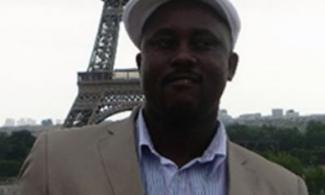
President Jakaya Kikwete of Tanzania was due in Ottawa last week for a meeting with Canadian Prime Minister, Stephen Harper. He was also billed to deliver a major speech at Carleton University. That was going to be a watershed moment for those of us in the African Studies family at Carleton.

President Jakaya Kikwete of Tanzania was due in Ottawa last week for a meeting with Canadian Prime Minister, Stephen Harper. He was also billed to deliver a major speech at Carleton University. That was going to be a watershed moment for those of us in the African Studies family at Carleton.
Owing to the dynamism and vision of Carleton’s administration, especially the Africa-friendly disposition of John Osborne, Dean of the Faculty of Arts and Social Sciences, the University is the place to be in Canada if your interest is Africa. This is not empty talk. The University’s investment in Africanist knowledge production is considerable. Carleton is home to the only stand-alone Institute of African Studies (IAS) in the whole of Canada.
Yours truly is a member of the Management Board of the Institute. Carleton has exchange/research agreements with Universities across Africa. Your columnist belongs in a crop of faculty that was hired across several disciplines as part of the Africa vision of Carleton’s authorities. Many Universities in North America, especially in the US, not wanting to spend money on tenure-track positions in African film, pretend that they are encouraging multidisciplinary by making their African literature faculty piggyback African film and cinema. Many US colleagues are thus experts of Nollywood and Negritude. Not Carleton. We have our own Professor of African film and cinema.
This extensive - and expensive! - commitment to Africa was now going to be rewarded with a visit by the President of one of the continent’s credible, performing, and responsible states. President Kikwete’s speech was in fact going to be delivered during one of the IAS’s course offerings, a political science course taught by my colleague, Professor James Milner. Pleasant notices and warm-up emails came from IAS Director, Professor Blair Rutherford. Then it happened! A sombre email from Professor Rutherford announced that President Kikwete had had to cancel his scheduled trip to Canada due to the ferry mishap that claimed about 200 lives in the Zanzibar region of Tanzania last weekend.
The ties that bind set in. The ties that bind us to a common backcloth of humanity set in. The ties that reduce us and diminish our collective humanity with every life meaninglessly lost set in. Your heart contracts under the weight of empathy and sorrow. You feel for Tanzania. You feel for Tanzanians. Another 200 lives lost in Africa. Oho, the tableau of bad news from Africa! Your sorrow ultimately gives way to the instinct for details.
The urge to comb the internet, to comb Tanzanian newspapers online, suggests itself as a natural course but a deep, dark suspicion inhibits you. Suspicion? No, make that fear. Fear inhibits you from scouring the internet for details. Fear of the truth that you suspect you will discover. You freeze in front of your computer screen, unwilling to happen on how the Tanzanian authorities are handling that national disaster. It will only lead you to the tyranny of comparison. No! You dare not dig too deep into how the Tanzanian authorities are handling the tragedy.
The tyranny of comparison? You try to escape it but it is too late. It is the eternal damnation of the Nigerian. Because our country, Nigeria, is an old woman, we are afraid to let people mention dry bones in our presence.
Blair Rutherford’s email announcing the cancellation of President Kikwete’s visit to Canada and Carleton because he just lost two hundred citizens is already a preliminary pointer to how the Tanzanian authorities are handling the crisis. And Blair’s email, unknown to him, inevitably points you to Nigeria. To how the Nigerian authorities would have handled that national tragedy. Or how they would not have handled it.
Precedence. History. Experience. Antecedence. They all point in only one direction, only one conclusion that you are loathe to admit: two hundred Nigerian lives meaninglessly lost would not have resulted in the cancellation of a planned presidential trip to Chad or Cameroon, let alone Canada, the United States or Britain. You know this because whenever “the giant of Africa” makes commitments to those she likes to call “small small African countries”, such commitments always wave a magic wand and become more important than the lives of the citizens of “the giant of Africa”. Indeed, it would probably take two Hiroshimas and the loss of 140 million
Nigerian lives for the zoologist of Otuoke and his aides to consider cancelling an estacode-guzzling trip abroad.
You may accuse the rulers of Nigeria of many things. You certainly cannot even mistakenly accuse them and their aides of having a sense of occasion or a grasp of the power of symbolism. The symbolism of the moment. You cannot accuse them of understanding the suasive power of the personal example. And so it is that while one African president cancelled a foreign trip because he lost citizens, the zoologist of Otuoke landed at the UN General Assembly in New York without ever having set foot in Jos to honour the dead and commiserate with the living; it took him a week to snail his way to Ibadan, although he can be excused here for not wanting to wail louder than the bereaved Governor Ajimobi who wouldn’t interrupt his hajj in Mecca just because Ibadan was flooded and his people were dying.
Eventually, I read up on how the Tanzanians were handling the disaster. Not only was President Kikwete not coming to Canada and Carleton, he was doing all the things I had expected the zoologist of Otuoke to do in the wake of the repeated tragedies to which we have lost so many Nigerian lives from Maiduguri to Ibadan via Jos and Abuja. President Kikwete was consoling his people, assuaging their pain, rallying them around the symbolism of his presidential presence. He was granting unscripted interviews. And he declared three days of national mourning. No action seemed to have been taken a second too late or as a hurriedly arranged response to criticism in the build-up to national catharsis.
Then another disturbing thought crept up in my mind. With the mourning over, President Kikwete also travelled to New York for the General Assembly. The zoologist of Otuoke and the usual compliment of presidential jumbo jets and a bridal train of superfluous aides were also around the corner. Given the fact that their charity always begins abroad, I entertained the worrisome thought that the Nigerian delegation could very well bump into President Kikwete and his delegation and promise some “brotherly aid” to Tanzania to help her cope with the ferry disaster. Let’s not kid ourselves: those who have done nothing for the victims of Nigeria’s multiple tragedies – the UN flew her wounded staff in Abuja to South African hospitals because of the incompetence of the Nigerian authorities – could suddenly come up with the bright idea of ferrying millions of dollars to Tanzania in aid. The giant of Africa thing is a disease that kicks in at odd times. I could not put any wasteful big-brotherly gestures beyond the Nigerian delegation in New York.
As I grappled with these thoughts, hoping that Sowore wouldn’t get a scoop and confirm my worst fear, a friend, who is aware of my love for animal documentaries, sent me a youtube clip. I’m addicted to documentaries of life at Kalahari, Masai Mara, Serengeti, Okavango, and Kruger. The adrenalin rush I experience while watching a chase and hoping that a wildebeest would escape the lions and gain another twenty-four hours on earth is often the origin of many an inspired essay.
The documentary that my friend forwarded to me this time is about the suspicion that elephants in the wild demonstrate emotion when faced with the death of their kind. Just search “elephants mourning” on youtube and you will find many of those documentaries: elephants approaching the carcass or the bones of a fallen elephant with so much respect. Their mien is a narrative of sorrow, their faces scripts of pathos. They grasp the solemnity of the moment. So, if elephants get it and know how to mourn their dead and console the living, why is getting it and doing the right thing every time our self-inflicted madnesses cost us precious Nigerian lives always rocket science for a zoologist?